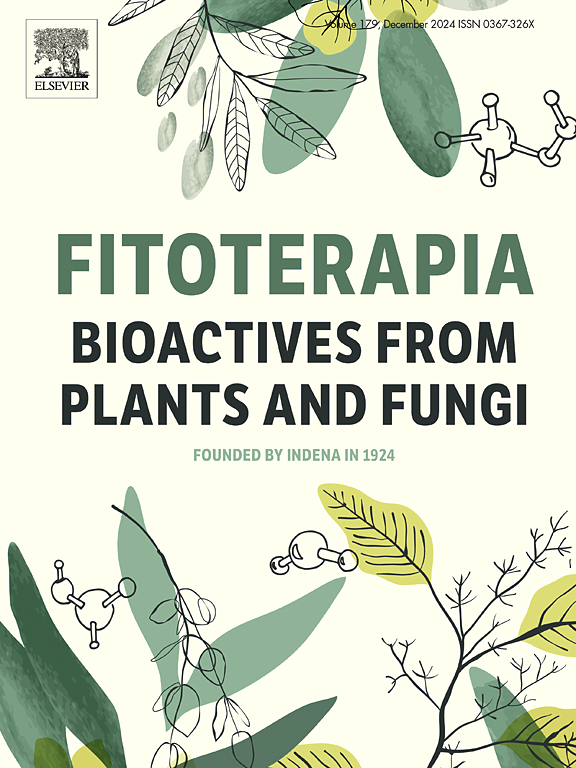Effects and mechanisms of dietary polyphenols in ameliorating glycolipid metabolic disorders: Inhibition of advanced glycation end products
IF 2.5
3区 医学
Q3 CHEMISTRY, MEDICINAL
引用次数: 0
Abstract
In recent years, the incidence of glycolipid metabolic disorders such as nonalcoholic fatty liver disease (NAFLD), obesity, and diabetic nephropathy (DN) has increased sharply, posing a significant threat to global public health and economic stability. Advanced glycation end products (AGEs), formed via the Maillard reaction (MR) between the carbonyl groups of reducing sugars and the free amino groups of proteins, play a critical role in the pathogenesis of these conditions. As such, inhibiting AGEs formation has emerged as a promising strategy for the prevention and treatment of glycolipid metabolic diseases. Recent studies have demonstrated that dietary polyphenols can inhibit AGEs formation through multiple mechanisms. These compounds are characterized by their safety, low toxicity, wide availability, and ease of access. This review first discusses the effects of AGEs formation, digestion, and absorption on human health, as well as the mechanisms by which AGEs contribute to disturbances in glucose and lipid metabolism and the progression of related metabolic diseases. It then provides a comprehensive overview of the mechanisms by which dietary polyphenols inhibit both endogenous and exogenous AGEs, and summarizes recent findings on their ability to ameliorate glycolipid metabolic disorders through AGEs suppression. Finally, this review highlights the potential of dietary polyphenols as modulators of glycolipid metabolism and outlines future research directions and challenges in this field. It is anticipated that this review will enhance scientific understanding of dietary polyphenols and promote their practical application in the development of novel functional foods.
膳食多酚在改善糖脂代谢紊乱中的作用和机制:抑制晚期糖基化终产物。
近年来,非酒精性脂肪性肝病(NAFLD)、肥胖、糖尿病肾病(DN)等糖脂代谢紊乱的发病率急剧上升,对全球公共卫生和经济稳定构成重大威胁。晚期糖基化终产物(AGEs)是通过还原糖的羰基和蛋白质的游离氨基之间的美拉德反应(MR)形成的,在这些疾病的发病机制中起着关键作用。因此,抑制AGEs的形成已成为预防和治疗糖脂代谢疾病的一种有前途的策略。最近的研究表明,膳食多酚可以通过多种机制抑制AGEs的形成。这些化合物的特点是安全、低毒性、广泛可用性和易于获取。本文首先讨论了AGEs的形成、消化和吸收对人体健康的影响,以及AGEs对糖脂代谢紊乱和相关代谢疾病进展的影响机制。然后全面概述了膳食多酚抑制内源性和外源性AGEs的机制,并总结了最近关于其通过抑制AGEs改善糖脂代谢紊乱的能力的发现。最后,本文综述了膳食多酚作为糖脂代谢调节剂的潜力,并概述了该领域未来的研究方向和挑战。本文的综述将有助于增进对膳食多酚的科学认识,并促进其在新型功能食品开发中的实际应用。
本文章由计算机程序翻译,如有差异,请以英文原文为准。
求助全文
约1分钟内获得全文
求助全文
来源期刊

Fitoterapia
医学-药学
CiteScore
5.80
自引率
2.90%
发文量
198
审稿时长
1.5 months
期刊介绍:
Fitoterapia is a Journal dedicated to medicinal plants and to bioactive natural products of plant origin. It publishes original contributions in seven major areas:
1. Characterization of active ingredients of medicinal plants
2. Development of standardization method for bioactive plant extracts and natural products
3. Identification of bioactivity in plant extracts
4. Identification of targets and mechanism of activity of plant extracts
5. Production and genomic characterization of medicinal plants biomass
6. Chemistry and biochemistry of bioactive natural products of plant origin
7. Critical reviews of the historical, clinical and legal status of medicinal plants, and accounts on topical issues.
 求助内容:
求助内容: 应助结果提醒方式:
应助结果提醒方式:


